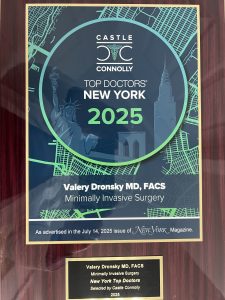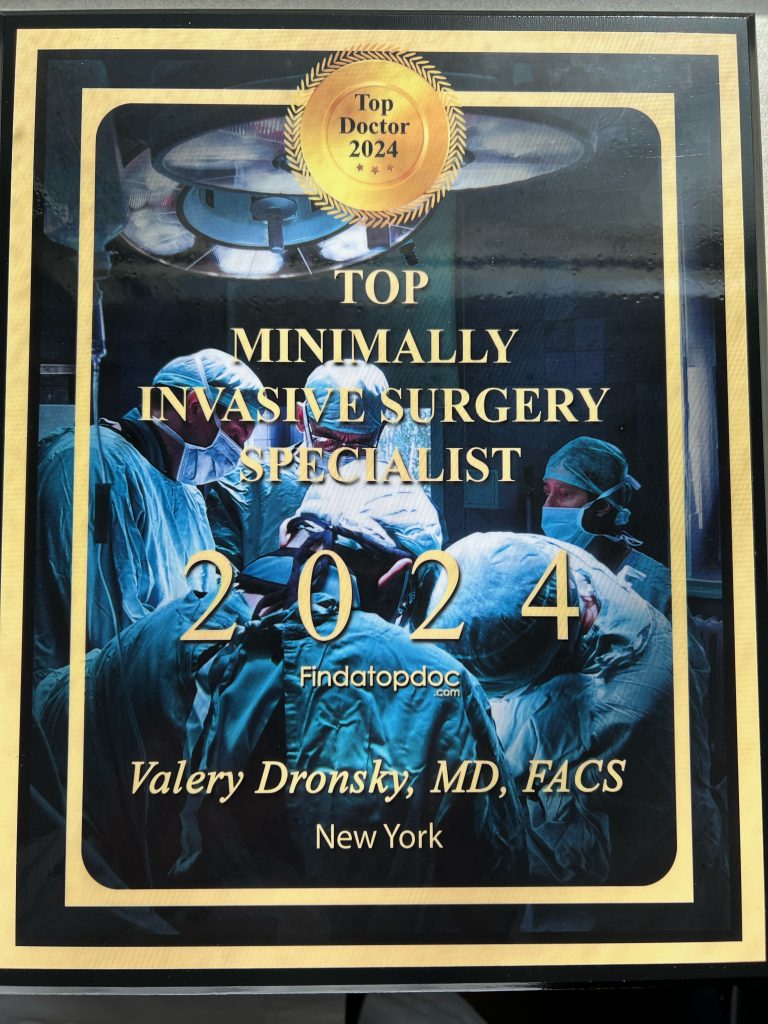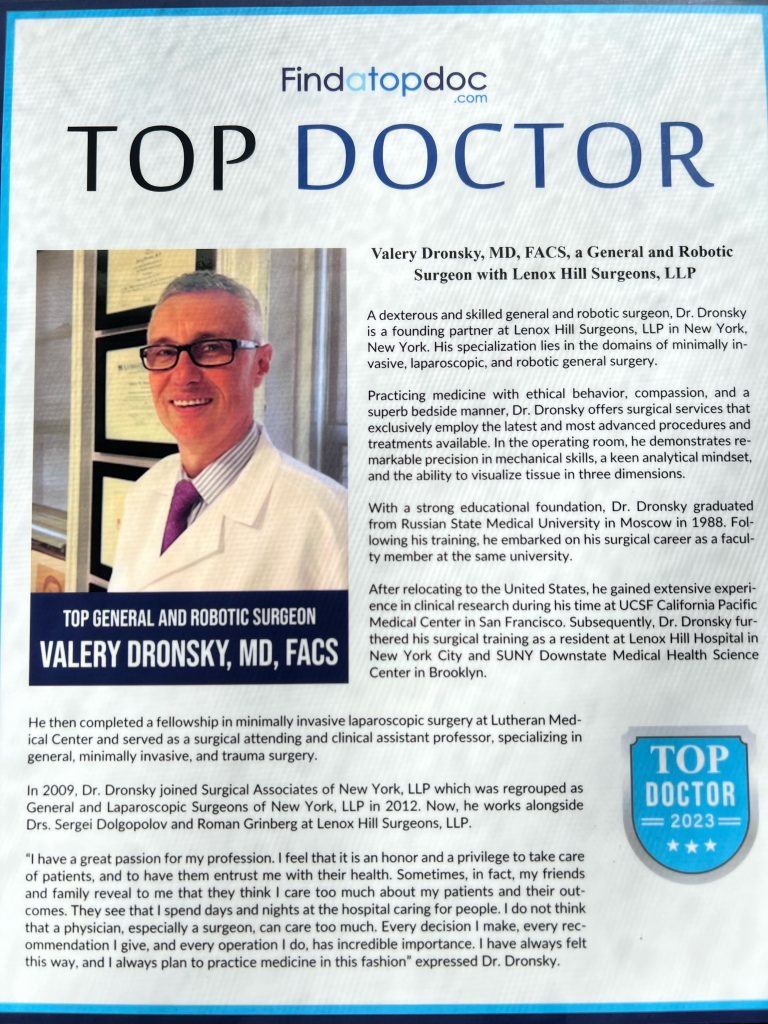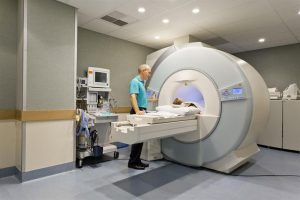CALL TODAY 646-846-1136 | EMAIL
Surgical Experts Dedicated to Improving Lives
At Lenox Hill Minimally Invasive Surgery PLLC, Dr. Valery Dronsky and his staff of medical professionals provide compassionate care with the highest ethical & professional standards. In our state of the art facility, we offer surgical services using only the most cutting edge and current procedures and treatments. We specialize in general surgery, including extensive experience in performing hernia repair surgery. Our expertise is in minimally invasive surgery and robotic surgery. Minimally invasive and robotic surgery often allow patients to experience easier recovery than traditional open surgery. They also allow for more precise and less traumatic surgery. When robotic and minimally invasive surgery is not an option, we are also skilled and experienced in traditional open surgical procedures.
Dr. Dronsky is an experienced and highly skilled surgeon having undergone extensive training in school, residency and fellowships. He practices medicine with ethical behavior, compassion and superb bedside manner. In the operating room he exhibits precision mechanical abilities, analytical thinking and the ability to visualize tissue in three dimensions. These innate and learned skills allow Dr. Dronsky to be one of the most dexterous and skilled professionals in New York City and the Country.
Call us: 646-846-1136
PATIENT TESTIMONIALS
Recent Awards
We are honored and deeply appreciative to have consistently received prestigious awards and recognition year after year, establishing us as one of New York’s foremost hospitals for a wide range of general surgeries, safety measures, specialized procedures, and overall excellence in healthcare. At Lenox Hill Minimally Invasive Surgery, our unwavering commitment lies in delivering exceptional care and unwavering support to our patients, guaranteeing their safety and successful recovery throughout their entire surgical experience.
Hospital Quality Awards
 America’s 50 Best Hospitals Award™ (2023, 2022)
America’s 50 Best Hospitals Award™ (2023, 2022)
Top 1% in the nation for providing the highest clinical quality year over year.

America’s 100 Best Hospitals Award™ (2021)
Top 2% in the nation for consistently delivering clinical quality year over year.

America’s 250 Best Hospitals Award™ (2023, 2022, 2021)
Top 5% in the nation for consistently delivering clinical quality.

Patient Safety Excellence Award™ (2023, 2022)
Top in the nation for providing excellence in patient safety by preventing infections, medical errors, and other preventable complications.
Specialty Clinical Quality Awards

America’s 100 Best Hospitals for Cardiac Care Award™ (2023, 2022, 2021, 2020, 2019)
Superior clinical outcomes in heart bypass surgery, coronary interventional procedures, heart attack treatment, heart failure treatment, and heart valve surgery.

America’s 100 Best Hospitals for Coronary Intervention Award™ (2023, 2022, 2021, 2020, 2019)
Superior clinical outcomes in coronary intervention procedures (angioplasty with stent).

America’s 100 Best Hospitals for Prostate Surgery Award™ (2023, 2022, 2021)
Superior clinical outcomes in prostate removal surgery and transurethral resection of the prostate.
Click to see all of our Healthgrades best doctors awards





Visit our main website at www.LenoxHillMinimallyInvasiveSurgery.com
Blog Posts are Below:
Monthly Archives: April 2018
Surgical Treatments for Pancreatic Cancer
 Pancreatic cancer is one of the most aggressive forms of cancer in humans and often the prognosis for patients is poor. There are several different types of pancreatic cancer and while many of them are often deadly, there is at least one type that is highly survivable.
Pancreatic cancer is one of the most aggressive forms of cancer in humans and often the prognosis for patients is poor. There are several different types of pancreatic cancer and while many of them are often deadly, there is at least one type that is highly survivable.
Because of the lethality of pancreatic cancer, most treatments focus on prolonging the patient’s life and ensuring that they retain a reasonable quality of life. Surgical interventions can be very effective as a part of this process.
Diagnosing the Cancer
 Once pancreatic cancer has been established, diagnostic tests are required to determine the stage and type of the cancer. The stage refers to how far advanced the cancer has advanced and ranges from stage 0, indicating that the cancer is still contained within the pancreas, to stage 4 which means the cancer has spread to other organs in the body.
Once pancreatic cancer has been established, diagnostic tests are required to determine the stage and type of the cancer. The stage refers to how far advanced the cancer has advanced and ranges from stage 0, indicating that the cancer is still contained within the pancreas, to stage 4 which means the cancer has spread to other organs in the body.
A battery of tests is required to determine the stage of the cancer and usually diagnostic pancreas surgery NYC is required. Because surgery will always carry some risk, doctors must first determine whether the tumor is removable before any surgery is performed. If imaging tests indicate that the cancer is removable, then it will fall into one of two types. Either the cancer has not spread, or if it has then it is limited, and is therefore removable.
Around 10% of pancreatic cancers are unresectable; this indicates that the cancer has grown into a major blood vessel or has metastasized and thus cannot be removed safely via surgery.
Treating Resectable Cancer
 If the cancer is considered to be resectable then there are three surgical options. The Whipple procedure (a pancreaticoduodenectomy) is when the head of the pancreas is removed, sometimes along with a small portion of the stomach or small intestine. This is a difficult and complex surgery. A Distal pancreatectomy involves the removal of the tail of the pancreas. A total ancreatectom is the removal of the entire organ, although this surgery has fallen out of favor.
If the cancer is considered to be resectable then there are three surgical options. The Whipple procedure (a pancreaticoduodenectomy) is when the head of the pancreas is removed, sometimes along with a small portion of the stomach or small intestine. This is a difficult and complex surgery. A Distal pancreatectomy involves the removal of the tail of the pancreas. A total ancreatectom is the removal of the entire organ, although this surgery has fallen out of favor.
Patient Outlook
In around half of all cases, as soon as a surgeon opens a patient up they discover that what they thought was a resectable cancer is in fact inoperable. Usually, surgery will be followed by the administration of chemo and radiotherapy to ensure that any lingering cancer cells cannot reproduce.
Pancreatic cancer is one of the most aggressive forms of cancer there is and the prognosis is often poor, but sometimes surgical interventions can help. Visit our pancreas surgery NYC clinic for a consultation if you are concerned about your pancreas.
Contact us at 646-846-1136 to schedule an appointment.
Common Types of Laparoscopic Surgery
 Laparoscopic surgery is a type of minimally invasive surgery in which a number of small incisions are made, around a quarter inch in length each. Using smaller incisions means that patients experience less pain and a shorter recuperation period. Below is a guide to some of the most common types of laparoscopic surgery.
Laparoscopic surgery is a type of minimally invasive surgery in which a number of small incisions are made, around a quarter inch in length each. Using smaller incisions means that patients experience less pain and a shorter recuperation period. Below is a guide to some of the most common types of laparoscopic surgery.
Colon
 Laparoscopic surgery of the colon requires four or five small incisions of around a quarter inch in size. Through these incisions, the surgeon uses a fiber optic camera connected to a monitor to see inside the patient and guide the other instruments.
Laparoscopic surgery of the colon requires four or five small incisions of around a quarter inch in size. Through these incisions, the surgeon uses a fiber optic camera connected to a monitor to see inside the patient and guide the other instruments.
Inguinal Hernia Repair
Laparoscopic inguinal hernia repairs are done via a laparoscope, which is fed into small incisions in the abdominal wall. A camera is fed through, as is a tube which allows for the abdominal cavity to be inflated with carbon dioxide. This allows more room for the surgeon to perform the procedure. The hole through which the muscle is protruding is covered with a surgical mesh from within and surgical staples are used to patch it.
Gallbladder Removal
The gallbladder is an organ located on the right-hand-side of the body, just under the rib cage and near the liver. Removal of the gall bladder is one of the most common targets for laparoscopic surgery. The gall bladder stores bile, which is used to assist in the breakdown of fatty foods. When we don’t eat for extended periods, such as during sleep, the gallbladder stores the bile ready to release it when it’s needed.
Laparoscopic gallbladder removal involves four small incisions in the abdomen, whereas in open surgery a five- to seven-inch incision is required. With laparoscopic surgery, surgical instruments and a camera are fed into the incisions in order to make the necessary cuts at various points around the organ.
Advantages of Laparoscopic Surgery
 Laparoscopic surgery is much less painful for patients in the immediate aftermath of their surgery and in some cases, they are even able to go home on the same day. The overall recuperation period is much shorter than it is for open surgery and the incidence of complications is lower. Laparoscopic surgery also causes very little cosmetic damage when compared with open surgery and for some patients, this is very important.
Laparoscopic surgery is much less painful for patients in the immediate aftermath of their surgery and in some cases, they are even able to go home on the same day. The overall recuperation period is much shorter than it is for open surgery and the incidence of complications is lower. Laparoscopic surgery also causes very little cosmetic damage when compared with open surgery and for some patients, this is very important.
Laparoscopic surgery of the colon, hernia repair, gallbladder removal, and many other forms of minimally invasive surgery are available at our clinic. Drop by for a consultation.















